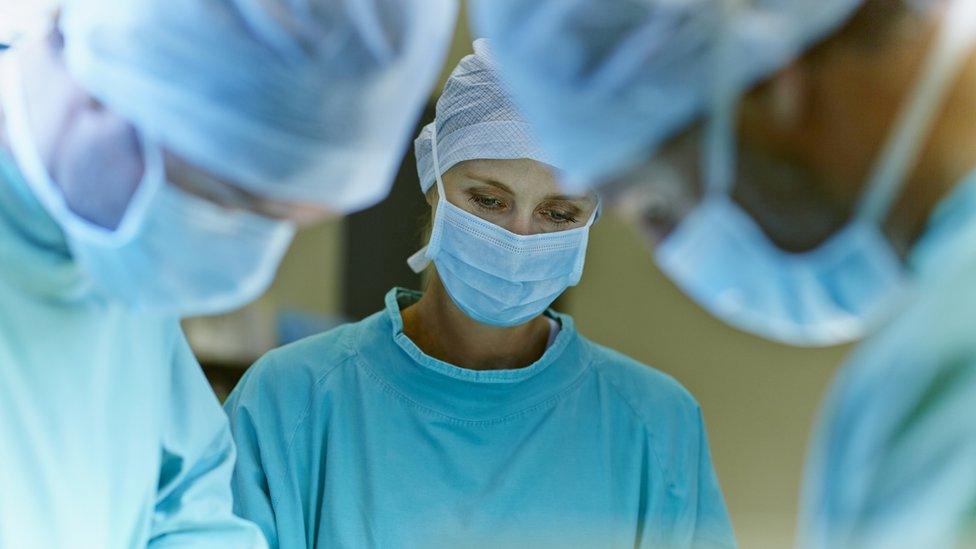Student doctors to practise on virtual patients
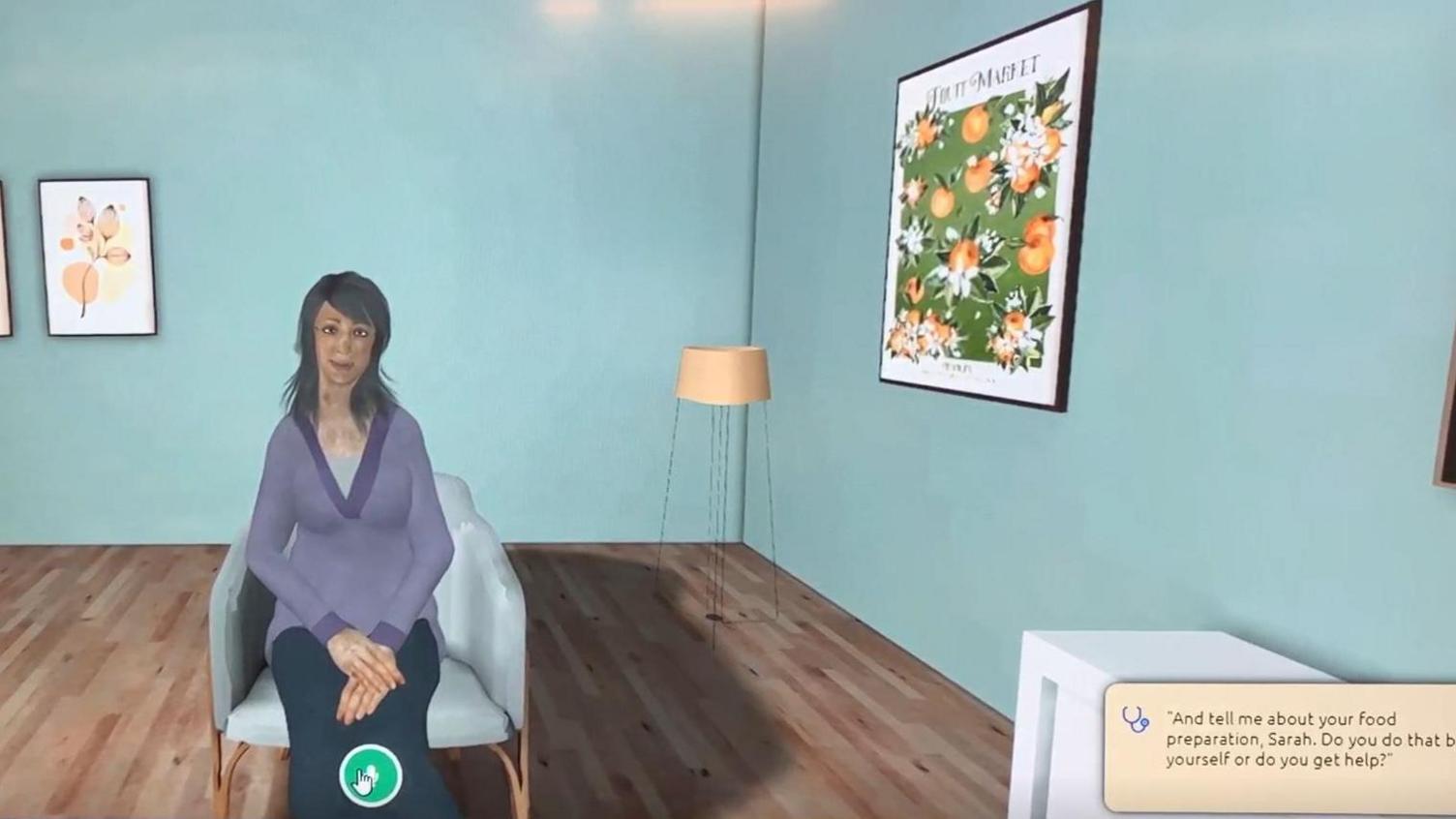
Coventry University says it will create the next generation of virtual patients using artificial intelligence
- Published
Medical students will soon be able to practise on virtual patients powered by artificial intelligence (AI) to behave like real people.
Coventry University says it will create the next generation of the AI-created patients to teach future healthcare workers.
New technology means avatars are able to give unique answers to specific questions, rather than simply listing symptoms.
The technology is powered by a large language AI model, which creators hope will assist medical students through greater customisation.
Lead researcher and PhD student Juliana Samson, said new technology was speeding up how quickly models could be made and deployed.
“Previously, you would have to create folders and folders of every single question and answer that you might imagine happens in a conversation and link it all together," she explained.
Ms Samson is working with AI firm PCS to create the software that learns as it goes, allowing the creation of more sophisticated avatars for students to practise with and learn from.
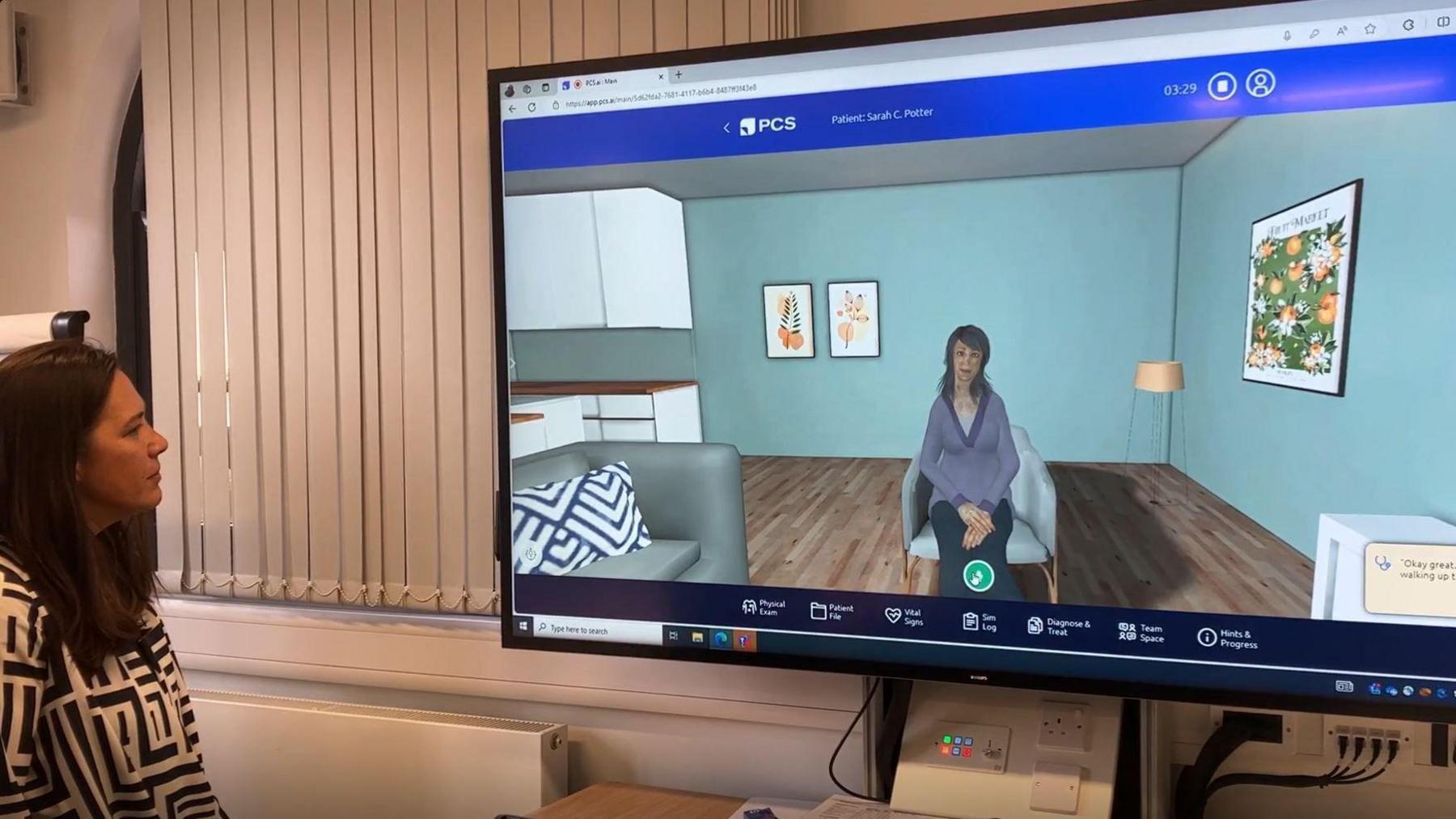
Lead researcher and PhD student Juliana Samson with the new technology
“With this artificial intelligence we have been able to create an avatar that actually behaves like a patient and can be created quickly," she explained.
"It would previously have taken around 100 hours to create a virtual patient but we did a 30-minute activity and the draft was miles better than before."
AI and its ability to assist medical professionals is being studied across Britain.
The NHS set up a national artificial intelligence laboratory in 2019 in a bid to "enhance" research and patient care.
Last December, a University of Warwick study found AI could analyse X-rays and diagnose medical issues just as well as doctors.
Researchers in Cardiff have also developed an AI system they hope will support radiologists to detect breast cancer earlier in patients.
Follow BBC West Midlands on Facebook, external, X,, external and Instagram, external, Send your story ideas to: newsonline.westmidlands@bbc.co.uk, external
Related topics
- Published11 December 2023
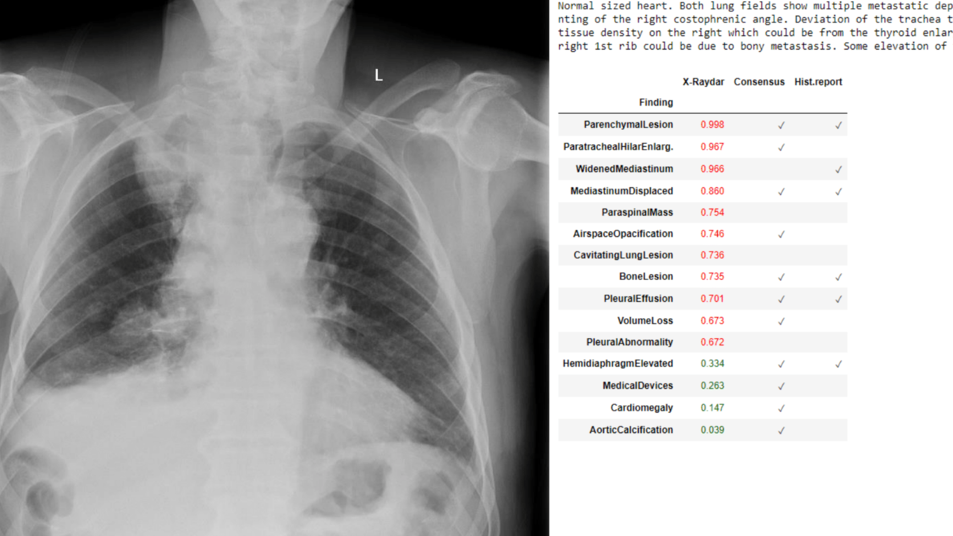
- Published25 July 2023
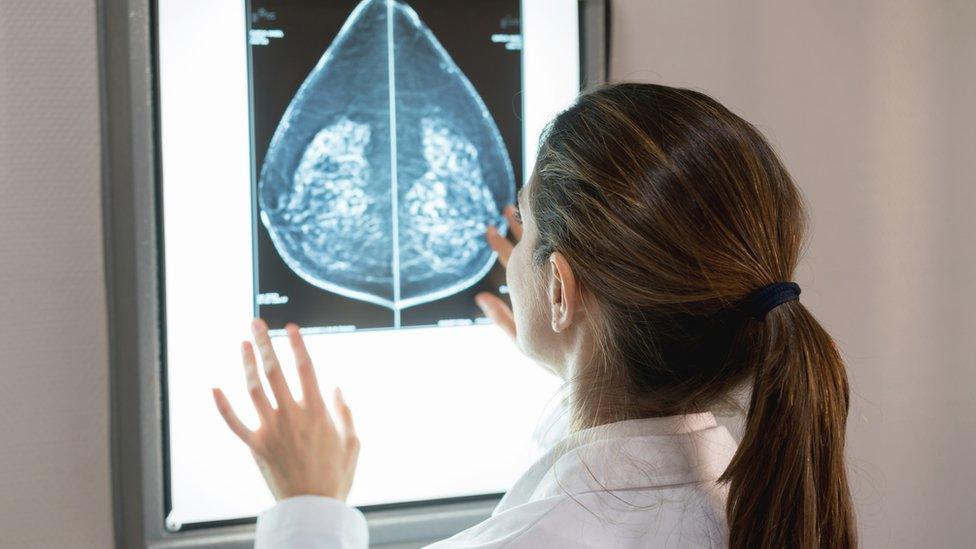
- Published8 August 2019
